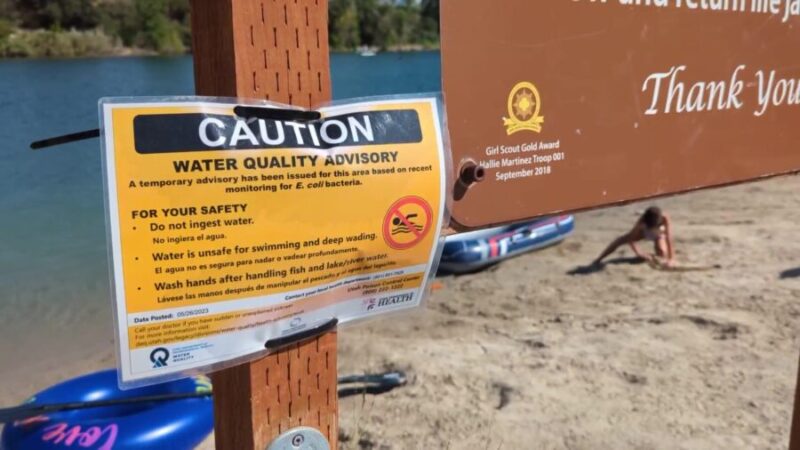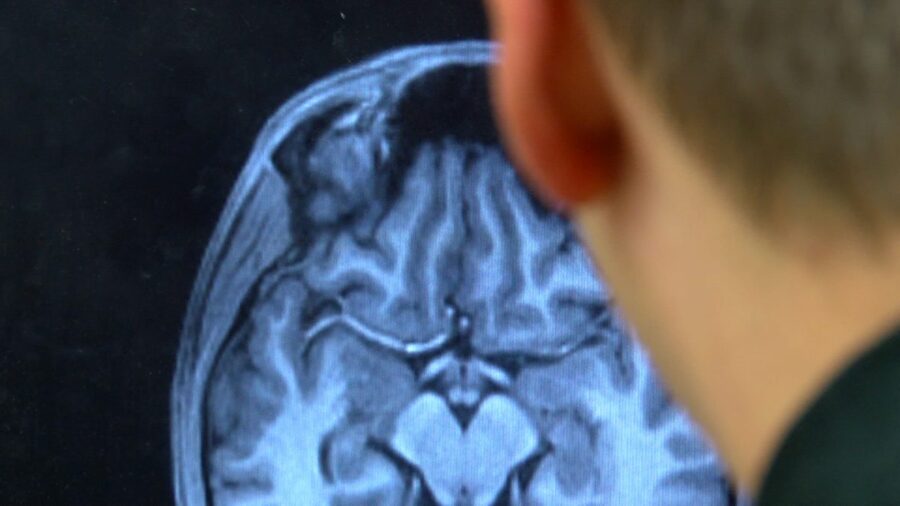Now 12 cases of E. coli furthers Lehi investigation
Aug 20, 2023, 1:04 PM | Updated: Aug 21, 2023, 6:54 pm
UPDATE: This article was previously published with the advisory to avoid watering lawns or using irrigation water. It has since been updated to advise not to use irrigation water to water lawns or gardens at all.
LEHI, Utah — The number of confirmed E. coli cases in Utah County over the past two weeks has risen to 12. The bacteria has been found in irrigation systems and reservoirs in the area, and the city’s investigation is ongoing — now involving the Centers for Disease Control and Prevention.
On Monday, Aug. 14, samples were collected from nine pressurized irrigation water sources and a nearby reservoir. Testing showed that five of the nine irrigation water sites contained the E. coli bacteria and it was found in the sediment of the reservoir.

E. coli water advisory sign in Lehi, Utah. (KSL TV)
Initial cases of E. coli were reported at eight, with five hospitalizations including a 3-year-old girl, Avery Allen.
Allen spent 13 days in the hospital after testing positive for E. coli. During her stay, she was on a feeding tube, undergoing dialysis and several blood transfusions.
3-year-old Allen is home now, but her kidneys are only functioning at 30%. Doctors said that it may take up to a year to see if the damage to her kidneys is permanent.
“It’s hard because she’s so young. You don’t expect a 3-year-old to have to endure something like this. So it’s really, really hard,” said her grandmother, Jennifer Reed.
Because of the increased danger found in the area, the city and the CDC advise residents of Utah County to adhere to the following important guidelines:
- Do not drink irrigation water.
- Do not water lawns or gardens.
- Do not use irrigation water in recreational activities. (bounce houses, pools, slip-n-slides, or any other recreational activities)
- Check for water advisory signs before swimming in nearby reservoirs.
- Use caution when allowing children to play on lawns or gardens that have been watered with irrigation water. It’s advised to watch the children to be sure their hands that might have touched lawns do not go in their mouths.
- Children should wash hands after playing outside. E. coli can still be present when the lawn isn’t wet.
- When tending to lawns or gardens, wear gloves and practice hand hygiene.
- Exercise caution when consuming uncooked produce from personal gardens that have been watered using irrigation water. Fruits and vegetables like these should be consumed only after being cooked. Simply washing may not eliminate the bacteria.
Signs of E. coli infection include diarrhea (often bloody), abdominal cramps, nausea, and vomiting. Severe cases can lead to kidney failure, especially among young children, the elderly, and individuals with compromised immune systems. It is advised to contact a health care provider if experiencing any of the above symptoms.













